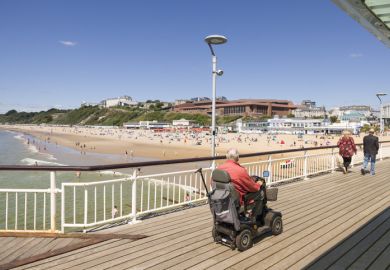The gleaming £15 million edifice houses eight internationally recognised research groups with 140 staff, but it is known within the University of Glasgow simply as "Anna's Building".
Its official title is the BHF (British Heart Foundation) Glasgow Cardiovascular Research Centre, indicating its broad research base and its joint core funding from both the BHF and the university. Its less formal name is an indication of the affection in which the centre's director, Anna Dominiczak, is held by her peers, and is recognition of her efforts in getting it off the ground after seven years of fundraising.
"We were in an old Victorian hospital, in a Portakabin that was built in the late 1960s for a Medical Research Council unit, supposedly for five years. The labs had no lift and we had to carry all the pieces of equipment ourselves," Professor Dominiczak said. "Now we're in a wonderful, purpose-built institute with a big multidisciplinary group of 140 people."
The professor's long-established recognition in the academic community was extended to the wider community in 2006, when she was appointed OBE for services to cardiovascular medicine and picked up the title of "Scotswoman of the Year" after a vote by readers of a Glasgow newspaper, in recognition of the difference she is making to people's lives.
In the building, clinicians and researchers work side by side, and Professor Dominiczak herself holds several clinics a week. "I think it's an important aspect of medicine to see real patients, and not just pronounce verdicts from high above."
The BHF statistics for coronary heart disease north of the border are stark. The premature death rate for men in Scotland is 50 per cent higher than in the South West of England, and 90 per cent higher for women. And Glasgow has the unenviable title of heart-attack capital of Europe, and probably the world.
Some might be dispirited by the size of the task facing the centre, but Professor Dominiczak finds it inspiring. With such a high level of disease, even small changes can make a real difference, she said.
Following a BHF international fellowship at the University of Michigan, she came to Glasgow as a senior lecturer and consultant in 1993. Since that time, death from heart disease in Scotland has fallen by just over a third, from 223 per 100,000 people to 140.
"This isn't a lost cause. I think the healthy lifestyle message is slowly coming through. It's becoming socially unacceptable to smoke, and I think we will see the health benefits from this more quickly than we thought. The BHF campaign is very persuasive, and I think it will eventually win."
She said the centre's aim is to change Glasgow's status of being top for cardiovascular disease to being top for fighting cardiovascular disease.
"We are in the middle of a city that needs us. Two thirds of the population of Scotland is 15 to 20 minutes from our doorstep. And the people of Glasgow themselves helped to raise some £4 million towards the centre."
Her expertise in heart disease stems from an interest in blood pressure she developed while a medical student at the University of Gdansk in her native Poland. Both her parents were professors of medicine at the university and practising doctors, but the young Anna rebelled against studying medicine because their diagnostic chat over the dinner table put her off eating. Instead, she decided to study geography, inspired by a charismatic teacher.
"My mother, who was a skilled people person, got him to persuade me that medicine was my life. She was absolutely right."
She married a fellow medical student, just as the rise of Solidarity was leading to the imposition of martial law and a clampdown on Poland's links with the West.
"It was a great time if you wanted to be a politician, but not if you wanted to be an academic physician," Professor Dominiczak said. "It was very difficult to see the future of research or an international career."
The two young graduates left for an approved stint of service in Malta, but had secretly decided not to return to Poland. They turned up in rain-soaked Glasgow with everything they had in a tiny Polski Fiat, which had lost its silencer somewhere in France.
Professor Dominiczak initially found a post as a house officer at the Glasgow Royal Infirmary, followed by training posts in medicine in Glasgow hospitals. She then joined the Medical Research Council's blood pressure unit, where she won the BHF fellowship that sparked off an interest in genetics.
"What I hope for the future, apart from changing the behaviour patterns of the entire population, is to be able to research the families at greatest risk," she said.
"We see families where the males die from premature heart attacks. The problem with young people is they think they are immortal. We need to target these young men and tell them they need to take greater care than other people."
Researchers from across the globe are coming to the multidisciplinary centre, which houses a clinical research facility, accommodating large clinical studies alongside basic research.
"Science is little building blocks and eventually - hopefully - a jump," Professor Dominiczak said.
"It could be a new drug, a clinical trial that changes how we treat things, or discovering a new gene that causes high blood pressure. Any one of these will do."
Register to continue
Why register?
- Registration is free and only takes a moment
- Once registered, you can read 3 articles a month
- Sign up for our newsletter
Subscribe
Or subscribe for unlimited access to:
- Unlimited access to news, views, insights & reviews
- Digital editions
- Digital access to THE’s university and college rankings analysis
Already registered or a current subscriber?



